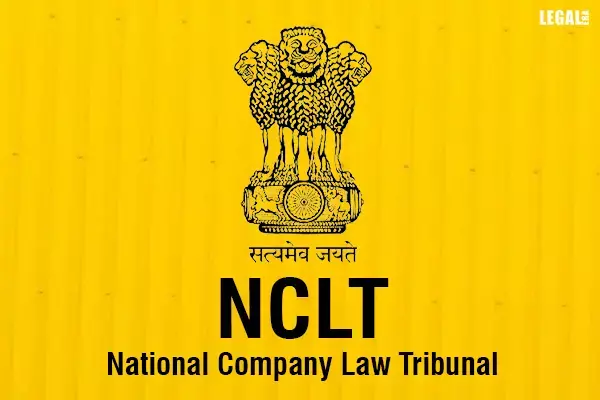NCLT: If Personal Guarantor Not a Party to OTS, then OTS Cannot be Construed as Acknowledgment on part of Personal Guarantor
The National Company Law Tribunal (NCLT), Amravati Bench by its single member Justice Telaprolu Rajani (Judicial Member);

NCLT: If Personal Guarantor Not a Party to OTS, then OTS Cannot be Construed as Acknowledgment on part of Personal Guarantor
The National Company Law Tribunal (NCLT), Amravati Bench by its single member Justice Telaprolu Rajani (Judicial Member) observed that the Personal Guarantor was not a party to the said One-Time Settlement (OTS) proposal and it was not even signed by the Personal Guarantor. Therefore, the OTS cannot be construed as an acknowledgement on part of the Personal Guarantor.
The NCLT was hearing an application filed by the petitioner/Financial Creditor (FC)- State Bank of India under Section 95(1) of the Insolvency and Bankruptcy Code, 2016 (IBC), read with Rule 7(2) of Insolvency and Bankruptcy (Application to Adjudicating Authority for Insolvency Process for Personal Guarantors to Corporate Debtors) Rules, 2019 seeking to initiate Insolvency Resolution Process against the Personal Guarantor of Respondent/Corporate Debtor (CD)- Mr. P. Raja Rao.
A working capital facilities loan was approved by the Financial Creditor in favor of the CD. The Respondent stood as a guarantor for the said loan and subsequently a deed of guarantee was executed. The guarantee was continuing in nature and therefore, the Guarantor was liable for all the subsequent loans granted to the CD.
Later in 2016, the CD's account was declared as Non-Performing Assets (NPA). The CD failed to repay the loan despite multiple reminders. An Original Application before the Debt Recovery Tribunal was preferred by the Financial Creditor against the CD which was pending.
On 26th September, 2018, the CD requested the FC for settlement under compromise. FC sanctioned an OTS for Rs. 40,00,00,000/- and issued a sanction letter dated 1st April, 2019 with the last date of payment as 26th June, 2019 which was not materialized and failed. Hence, the OTS was cancelled by the FC vide letter dated 3rd July, 2019. Thus, the default occurred on 26th June, 2019.
The FC preferred the present company petition to seek initiation of the Corporate Insolvency Resolution Process (hereinafter referred to as "CIRP") against the Personal Guarantor of the Corporate Debtor.
At the stage of appointing a Resolution Professional, since the Respondent does not have the right to the audience, no opportunity to file a counter was given. The Resolution Profession submitted a report stating that a default has been committed by the Guarantor. Therefore, the present petition was preferred.
The Respondent/Personal Guarantor submitted that the Respondent is the shareholder of CD and that he did not sign in his personal capacity. Due to the grant of OTS, the Respondent was discharged from his liabilities following Section 135 of the Indian Contract Act, 1872. It was argued that the cause of action was barred by time as the default occurred in 2016 when the account was declared as Non-Performing Assets.
Per contra, the Petitioner/Financial creditor contended that the Respondent was aware of all the events and therefore cannot deny signing a document that is a part of the series of contracts. The Respondent consciously signed documents in the capacity of the Personal Guarantor.
The Tribunal observed, "the language of Section 135 is very clear that once the creditor and principal debtor entered into a contract, by which the creditor makes a composition with, or promises to give time to, the principal debtor, discharges the surety, unless the surety assents to such contract."
The NCLT noted that the Personal Guarantor was not a party to the said OTS proposal, and it was not even signed by the Personal Guarantor. Therefore, the OTS cannot be construed as an acknowledgment on part of the Personal Guarantor.
Moreover, acknowledgment of debt was done in 2016, and Section 18 of the Limitation Act, 1963 applies to the proceedings under the Insolvency and Bankruptcy Code, 2016. Hence the period of limitation expired in 2019 whereas the present petition is filed in 2022, which would be barred by the period of limitation.
Thus, due to the aforesaid reasons, the NCLT held that the company petition was not maintainable and accordingly, dismissed.

